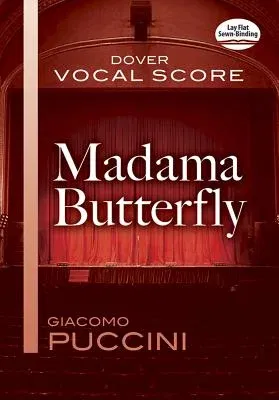Giacomo Puccini
(Author)Madama Butterfly: Vocal ScorePaperback, 20 August 2014

Qty
1
Turbo
Ships in 2 - 3 days
Only 1 left
Free Delivery
Cash on Delivery
15 Days
Free Returns
Secure Checkout

Part of Series
Dover Vocal Scores
Print Length
288 pages
Language
EnglishItalianMultiple Languages
Publisher
Dover Publications
Date Published
20 Aug 2014
ISBN-10
0486780376
ISBN-13
9780486780375
Description
Product Details
Author:
Book Format:
Paperback
Country of Origin:
US
Date Published:
20 August 2014
Dimensions:
27.43 x
19.15 x
1.65 cm
ISBN-10:
0486780376
ISBN-13:
9780486780375
Language:
English
Italian
Multiple Languages
Location:
New York
Pages:
288
Publisher:
Series:
Weight:
589.67 gm